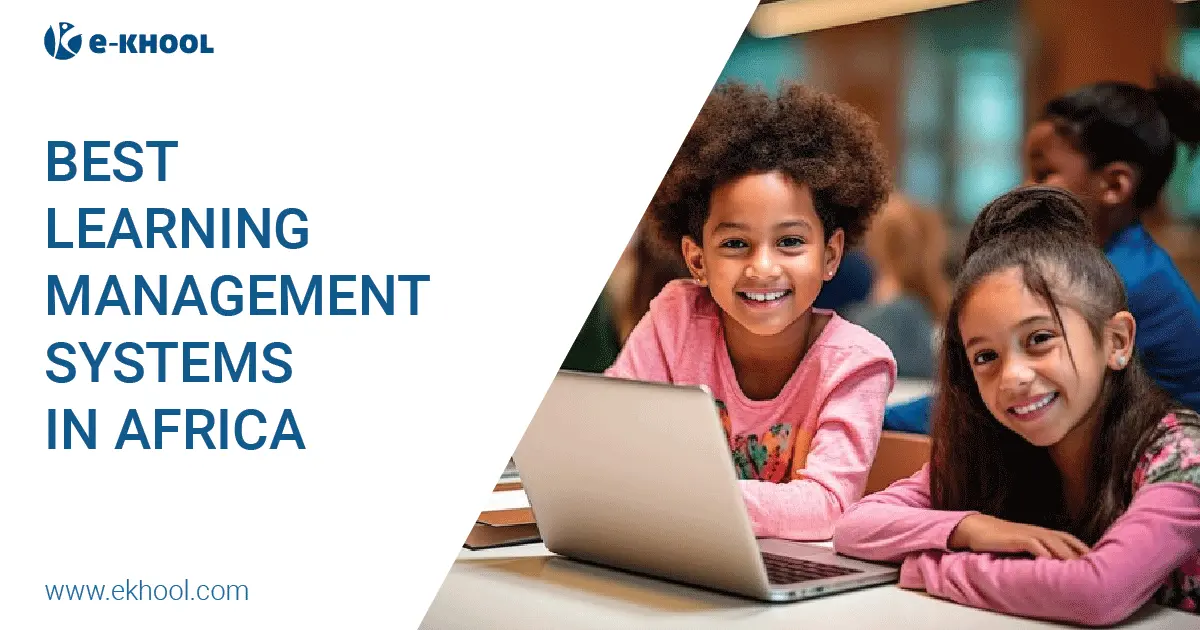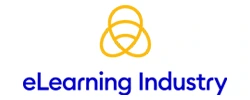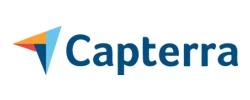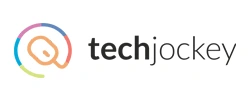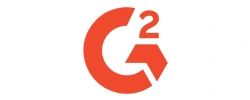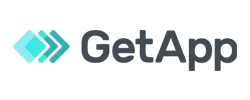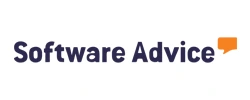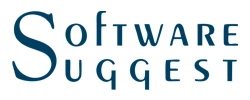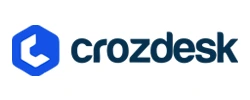Learning management systems (LMS) that are reliable and scalable are becoming more and more important as Africa's educational landscape changes quickly. In this regard, a number of LMS platforms have become prominent in the area, providing a variety of features designed to satisfy the various requirements of African educational establishments. With the help of these technologies, teachers can create engaging lessons, monitor student progress, measure performance, and much more. This makes it possible for them to provide high-quality instruction effectively and efficiently. Best Learning Management Systems in Africa will surely play a major role in determining how education is shaped in Africa going forward, especially as the continent continues to experience technological breakthroughs and a rise in internet usage.
Let us just have a walkthrough of the article
The Contribution of LMS to the Learning Environments in African Countries
Best Learning Management Systems in Africa have made a substantial contribution to the educational settings in African nations. LMS in Africa have given educational institutions an organized and convenient way to track student progress and offer information. They have made it possible for teachers to design engaging and dynamic classes that are suited to the different needs of pupils in different areas. Additionally, the use of LMS has made distance learning easier, which is especially advantageous in rural areas with limited access to high-quality education. LMS in Africa has been essential in closing educational gaps and fostering chances for lifelong learning by utilizing technology.
List of Top Learning Management Systems in Africa
Africa's educational environment is changing quickly as a result of the use of technology into the curriculum. When it comes to the technologies that are being used, Learning Management Systems (LMS) are essential. These systems provide for the effective management of educational information, online learning, and resources for both educators and students. Many LMS have become well-known in Africa as a result of their strong features and intuitive user interfaces. Among the most notable are e-khool,, which is well known for its ability to be customized; eLearn, which is well-liked for its interactive courses; and Schoology, which provides extensive assessment facilities. These platforms are revolutionizing the way education is delivered throughout the continent, opening up and enhancing the learning process.
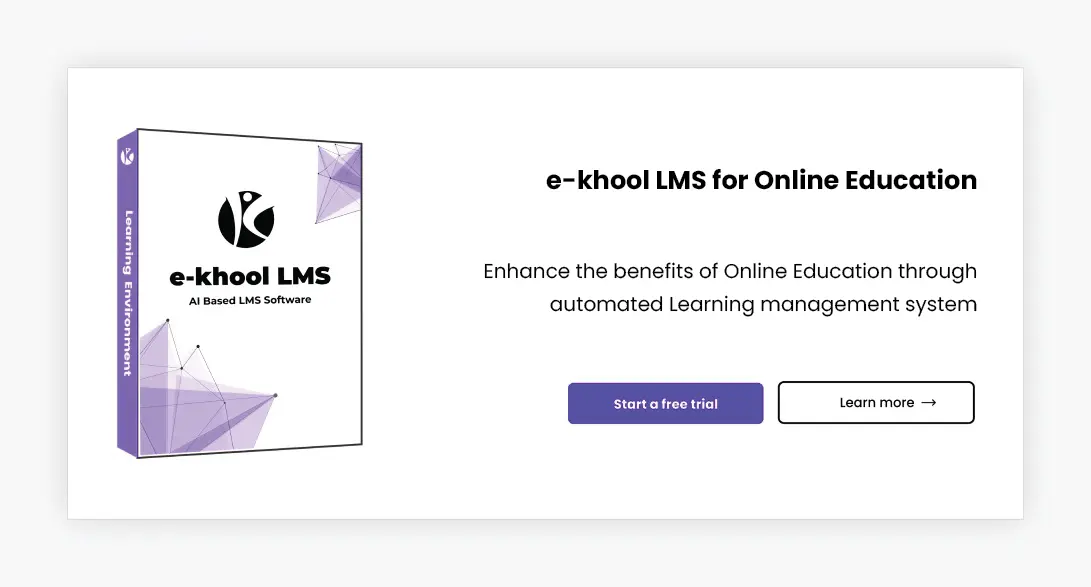
Best LMS trends in Africa
The best LMS Systems in Africa market is growing quickly, and in 2024, a number of significant trends are expected to surface. Notably, an increasing number of LMS systems are prioritizing mobile devices, recognizing that mobile devices are used extensively throughout the continent. Furthermore, augmented reality (AR) and virtual reality (VR) integration is becoming more popular, providing immersive learning opportunities that improve retention and engagement. By utilizing the strength of community and teamwork, social learning is also gaining popularity and changing how students engage with one another and learn from one another. Additionally, the development of eLearning ecosystems is resulting in learning environments that are more adaptable and networked. These patterns are part of a larger movement in education toward more technology-enhanced, individualized, and accessible instruction, which will have a big impact on learning results in Best LMS Systems in Africa.
Improving the State of Education in Africa with e-khool LMS
With the integration of e-khool LMS, a platform that elevates contemporary learning management systems to the forefront of educational innovation, the status of education in Africa is set to undergo a metamorphosis. With its extensive feature set, e-khool LMS, one of the Top Learning Management Systems in Africa tackles a number of issues that the African education industry faces, such as resource scarcity, accessibility, and instructional quality. Educational institutions can offer a more flexible, individualized, and interesting learning experience by utilizing e-khool LMS. Through the use of this platform, students can access instructional materials from a distance, removing barriers related to location and promoting diversity. Students' varied schedules are accommodated by the flexibility of asynchronous learning, which lets them learn at their own pace and convenience.
Moreover, the data analytics features of e-khool LMS provide a personalized learning environment that adjusts to each student's development and performance. This improves learning and gives teachers the ability to properly monitor and assist students' development. Additionally, by lowering the requirement for physical infrastructure and supplies, the cost-effectiveness of e-khool LMS, Top Learning Management System in African countries, increases access to high-quality education. It is a flexible system that works in a range of educational environments, from elementary schools to universities. The platform's design takes into account the requirements of students with impairments as well, making education accessible to all.
Broadly speaking, e-khool LMS software can support continuous professional development, helping companies effectively upskill their personnel. Africa's embrace of digital transformation is exemplified by e-khool LMS, which shows how EdTech can revolutionize teaching and learning approaches.
Also Read: Best e-Learning Tools and Technologies to Create Courses Online
Benefits of Using e-khool in African Countries
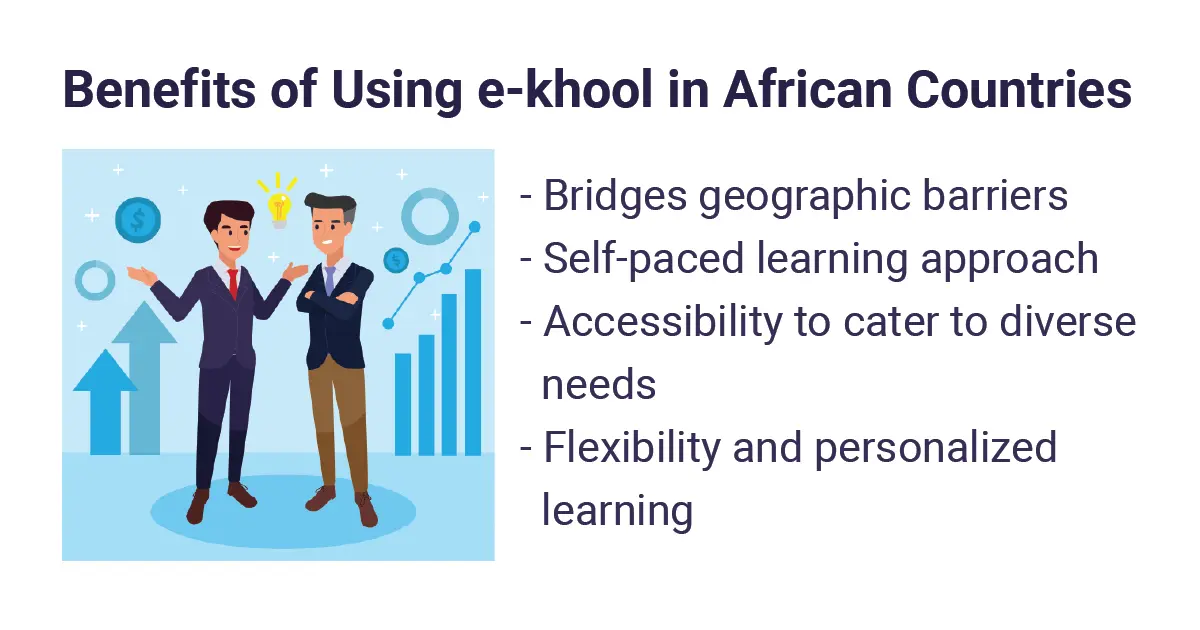
There are several advantages to implementing the Learning Management Systems in African countries, e-khool in African nations, which can greatly improve the state of education. First and foremost, e-khool overcomes geographical obstacles to provide children in isolated or rural locations with access to high-quality education—a vital benefit given the size and diversity of the African continent. Because e-khool's asynchronous learning is flexible, it may fit into a variety of schedules and allow students to interact with the course materials whenever it is convenient for them. This is especially advantageous for working professionals or students with other obligations.
Additionally, through digital learning management systems in Africa, students can advance through courses in accordance with their unique learning styles and speeds according to e-khool's self-paced learning methodology, which promotes a more effective and customized learning experience. Customized learning paths are made possible by the system's data analytics capabilities, which adjust assignments and content according to the performance and progress of each learner. This guarantees individualized educational support through LMS services for education in Africa.
Another significant benefit of e-khool is its accessibility, which includes features like screen readers and alternate content formats that are intended to meet a variety of needs. This makes education more inclusive for students with impairments. Furthermore, e-khool's cost-effectiveness lowers the need for physical infrastructure and supplies, which lowers educational costs for both institutions and students. This is especially important in the context of African nations, where money for education can be scarce.
In addition, the LMS facilitates continuous professional development, which goes beyond conventional schooling to encompass reskilling and upskilling in the workforce. This helps advance people's careers and advance the economies of countries. Because of its scalability, e-khool is a viable option for long-term educational planning because it can accommodate the platform's growing requirements as educational institutions develop.
To summarize, e-khool's LMS is an effective instrument for African nations, providing improved accessibility, flexibility, personalized learning, and cost-effectiveness—all critical for surmounting educational obstacles and fostering lifetime learning and career advancement. Its adoption might be a game-changer for the continent's educational landscape, making it an invaluable investment in the future of African countries.
Frequently Asked questions
1: How do LMS platforms improve learning efficiency?
They provide a structured environment similar to a traditional classroom, with features like gradebooks, assignments, quizzes, and material attachments.
2: Can LMS platforms be used for corporate training?
Yes, many organizations use LMS platforms to plan, develop, provide, and track training for employees, clients, and partners.
3: What should be considered when choosing an LMS?
Important factors include cost, ease of management, the availability of features relevant to the user's needs, and the level of support provided.
4: How has the demand for LMS changed in Africa?
The demand for quality LMS has increased due to the need for more relevant skills and to address the low coverage of education on the continent.
Conclusion:
The need for accessible education and skill development is driving the demand for Learning Management Systems across Africa. The eLearning industry is growing quickly, and by 2027, it is expected to be worth $1 trillion, indicating the widespread trend toward online learning. Africa's educational system now has more accessibility and flexibility thanks in large part to e-khool LMS. It removes obstacles based on geography, giving children in isolated places access to high-quality education. Notwithstanding its advantages, African educators are not as aware of or interested in using LMSs. Learning management systems enable an online learning environment with gradebooks, homework, tests, and resource attachments.

